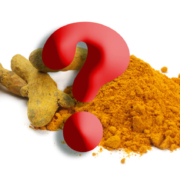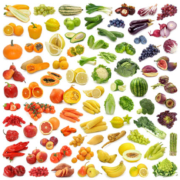Dr. Chet’s Health Memos
 If it’s in the health news today, I’ll be writing about it as soon as I read the research, both old and new. With my email Health Memos, you’ll know more about making lifestyle choices that will help you get and keep good health. These free, concise updates on health are emailed to subscribers twice a week. Subscribe today and get a free MP3, in English or Spanish, of Dr. Chet’s Top Ten Tips—Small Changes for a Healthier Life.
If it’s in the health news today, I’ll be writing about it as soon as I read the research, both old and new. With my email Health Memos, you’ll know more about making lifestyle choices that will help you get and keep good health. These free, concise updates on health are emailed to subscribers twice a week. Subscribe today and get a free MP3, in English or Spanish, of Dr. Chet’s Top Ten Tips—Small Changes for a Healthier Life.
Nutrition: Knowing Isn’t Doing
In Tuesday’s message, I said that both the experts and the public in a New York Times nutrition survey considered the vitamin and mineral content of food important or very important when they consider whether a food is healthy or not. But do people have enough information to make a decision about which foods are healthy? Not surprising that the nutrition experts almost all said they did. What shocked me was that 81% of the public also said they had enough information to make healthy choices.
That’s interesting because it contradicts what the authors of the New York . . .
We're sorry, but this content is available to Members and Insiders only.
If you're already a DrChet.com Member or Insider, click on the Membership Login link on the top menu. Members may upgrade to Insider by going to the Store and clicking Membership; your membership fee will be prorated automatically.
Nutrition: Experts and the Public Disagree
A recent New York Times survey compared the survey results of nutrition experts, including me, with the public’s opinions. Some differences make sense—others, not so much.
When asked whether a food was healthy, experts said foods high in fat and/or sugar were generally not healthy. The greatest differences were in granola, granola bars, and frozen yogurt with over a 30% difference between experts, who thought they were not healthy, and the public who thought they were.
What surprised me was that experts viewed coconut oil as not healthy while the public indicated it was healthy. The only . . .
We're sorry, but this content is available to Members and Insiders only.
If you're already a DrChet.com Member or Insider, click on the Membership Login link on the top menu. Members may upgrade to Insider by going to the Store and clicking Membership; your membership fee will be prorated automatically.
Nutrition: Experts and the Public Agree
A couple of months ago, I was asked to participate in a nutrition survey. I don’t usually answer surveys, but this was a request through the American Society of Nutrition (I’m a member) and we were told we’d get a chance to view the data, so I decided to do it. For comparison they also surveyed 2,000 people who were not in the nutrition field, and we’d get to see that data as well. The New York Times health writers published an article on the results (1). I decided to look at the data and . . .
We're sorry, but this content is available to Members and Insiders only.
If you're already a DrChet.com Member or Insider, click on the Membership Login link on the top menu. Members may upgrade to Insider by going to the Store and clicking Membership; your membership fee will be prorated automatically.
Curcumin: Question 3
Most super herbs and juices come from other countries—açai from Brazil and noni from Southeast Asia to Australia. Curcumin seems to have been used in India for hundreds of years. As we finish this look on questions we should ask about the latest and greatest nutrient, juice, or herb, this is most likely the simplest question of all. Here’s the obvious question: do the people where the herb is traditionally used live longer than we do in the U.S.?
I’ll stick with curcumin and India. Although our official life expectancy just decreased a couple of . . .
We're sorry, but this content is available to Members and Insiders only.
If you're already a DrChet.com Member or Insider, click on the Membership Login link on the top menu. Members may upgrade to Insider by going to the Store and clicking Membership; your membership fee will be prorated automatically.
Curcumin: Question 2
Unintended consequences—that’s one of the basic tenets of science. We introduce a change, whether a diet, a nutrient, or even a specific type of exercise and we get results we didn’t expect. If they’re positive, great. But what if they’re not?
Here’s one for you. A good friend loved to eat carrots, and she ate a lot of raw carrots as part of her meals and snacks. Carrots have carotenoids, which have a characteristic orange color. She ate so many carrots that the palms of her hands turned orange. Definitely an unintended consequence.
Having . . .
We're sorry, but this content is available to Members and Insiders only.
If you're already a DrChet.com Member or Insider, click on the Membership Login link on the top menu. Members may upgrade to Insider by going to the Store and clicking Membership; your membership fee will be prorated automatically.
Curcumin: Question 1
In April, I wrote about curcumin, the latest popular supplement proclaimed to fix what ails us; it’s an antioxidant, reduces inflammation, and may have other beneficial properties in treating cancer and improving memory. But over the holiday weekend, I thought about the questions that still need to be answered. The questions apply to just about any nutrient that’s purported to be the latest and greatest—juices such as açai or noni or powders such as moringa.
Let’s begin with antioxidant properties. Could the amounts used in supplements be too much? Curcumin is poorly absorbed; that’s . . .
We're sorry, but this content is available to Members and Insiders only.
If you're already a DrChet.com Member or Insider, click on the Membership Login link on the top menu. Members may upgrade to Insider by going to the Store and clicking Membership; your membership fee will be prorated automatically.
Quantifying the Benefits of Nature
When this type of study is published, we can think of it as touchy-feely; in other words, it’s about how we feel more than hard numbers. That may be true on the surface, but let’s take a look at the effect on society from just one benefit of spending time in nature.
The study showed that if people spent just 30 minutes per week in a park, the rate of depression in cities could be reduced by 7%. While they didn’t test it, I would say that’s true for just about anybody who spends time . . .
We're sorry, but this content is available to Members and Insiders only.
If you're already a DrChet.com Member or Insider, click on the Membership Login link on the top menu. Members may upgrade to Insider by going to the Store and clicking Membership; your membership fee will be prorated automatically.
Research on Nature and Health
I’m back on the deck to write today’s message about the benefits of spending time with nature (1). Researchers tested over 1,500 subjects who live in urban settings; they wanted to quantify visits to parks in cities with physical measures such as depression, blood pressure, social interactions, and physical activity (2). If you’re a long-time reader, you know I prefer studies with solid measurements such as body weight or cholesterol levels. Surveys and questionnaires are subject to how a person feels at any given moment, but these researchers used the best instruments available.
They found . . .
We're sorry, but this content is available to Members and Insiders only.
If you're already a DrChet.com Member or Insider, click on the Membership Login link on the top menu. Members may upgrade to Insider by going to the Store and clicking Membership; your membership fee will be prorated automatically.
Does Nature Improve Health?
One of my favorite places during the summer is on our deck. I just love sitting out there in the cool of the morning. On a calm day with little humidity, it’s great even when the temperature hits the mid-80s; the shade sail helps. Working or relaxing, it’s my favorite place. The flowers. The trees. The birds, especially the frequent visits by hummingbirds. This patch of nature didn’t happen by accident. Over the 15 years we’ve been here, Paula has created a space that soothes the mind, helps creativity, and lifts the soul. That’s . . .
We're sorry, but this content is available to Members and Insiders only.
If you're already a DrChet.com Member or Insider, click on the Membership Login link on the top menu. Members may upgrade to Insider by going to the Store and clicking Membership; your membership fee will be prorated automatically.
PQQ: The Bottom Line
I’ve told you about PQQ this week because I’ve been asked about it so often. First I talked about the infomercial; the hype is tremendous if you spent the 30 minutes or so to watch it. There are actually a couple of different ads that essentially say the same thing. Then I showed you the research or rather lack of it. Why write anything more? Because there are things you should know about PQQ that I’m going to cover today.
PQQ is . . .
We're sorry, but this content is available to Members and Insiders only.
If you're already a DrChet.com Member or Insider, click on the Membership Login link on the top menu. Members may upgrade to Insider by going to the Store and clicking Membership; your membership fee will be prorated automatically.










